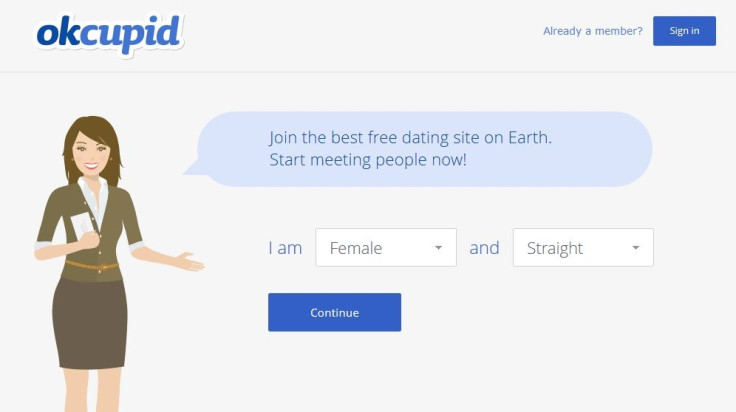OkCupid Experiment Hype: Founder Christian Rudder Confesses, Sells Lots Of Books

On the Internet, everyone is a guinea pig -- and a customer.
That’s the latest message from Christian Rudder, co-founder of the dating website OkCupid, who opened old wounds on Monday with a bold new blog post called, “We Experiment on Human Beings!” In the post, the Harvard-educated data scientist fanned the flames lit by Facebook Inc. (NASDAQ:FB), which received a groundswell of criticism last month amid revelations that it tweaked the newsfeeds of undisclosed users to learn if negative emotions are contagious. Facebook’s experiments, the results of which were included in a study by Cornell University, raised numerous legal and ethical issues, and led to a complaint to the Federal Trade Commission from the privacy group Electronic Frontier Foundation.
But Rudder says Facebook is getting a bad rap, and that anyone who signs up for a social networking site is essentially agreeing to be experimented on. “[G]uess what, everybody: if you use the Internet, you’re the subject of hundreds of experiments at any given time, on every site,” Rudder writes. “That’s how websites work.”
Rudder goes on to admit that OkCupid, too, has tweaked an algorithm or two for the sake of experimentation. He cites three “of the more interesting” experiments OkCupid has run. The first, “Love Is Blind,” involved removing all the pictures from OkCupid to see how people would communicate and connect with one and other in absence of visual stimuli.
The second experiment concerned OkCupid’s old rating system, which allowed users to rate other users on both looks and personality. OkCupid data-crunchers had a hunch that users only looked at pictures and didn’t bother putting much thought into rating personalities. Turns out, they were right.

The last, and perhaps most troubling, experiment involved OkCupid’s "matching" algorithm -- the secret sauce of the dating website -- which lets users know how well they match up with other users. In an effort to test the algorithm’s accuracy, the OkCupid team tweaked the results for some users, telling users who were a bad match that they were actually a good match. Users are generally more likely to respond to messages from people deemed a good match by OkCupid’s algorithm, and the aim of the experiment was to glean insight into how much of the algorithm’s success was owed to the old-fashioned power of suggestion.
The verdict? The power of suggestion goes along way. “OkCupid definitely works, but that’s not the whole story,” Rudder writes. “[I]f you have to choose only one or the other, the mere myth of compatibility works just as well as the truth.”
Like Facebook, OkCupid, which is owned by Barry Diller’s InterActiveCorp (NASDAQ:IACI), has given itself, via fine print, the right to experiment on humans who use its site. Its privacy policy states that the website may “perform research and analysis about your use of, or interest in, our products, services, or content, or products, services or content offered by others.”
But there are key differences between the experiments Rudder disclosed and the one Facebook took heat for last month. For one thing, Rudder notes that OkCupid users whose matches were tweaked were notified of the correct matches once the experiment concluded. Facebook, conversely, claims it has no idea which users were involved. Critics called that point particularly problematic, since many Facebook users are minors. (OkCupid users must be 18 or older.)
Finally, all of the studies Rudder cited appear to be specifically aimed at making OkCupid better. The only ostensible aim of Facebook’s newsfeed tweak was to see if positive or negative Facebook posts affect our moods. Presumably, Facebook was looking to debunk research showing that excessive Facebook use makes us sadder.
For Rudder, there appear to be commercial aims as well. His post appeared on the “OkTrends” blog, which was dormant for more than three years as Rudder took time to write his new book, “Dataclysm: Who We Are (When We Think No One's Looking).” The book is due out in September from Crown Publishing. Conveniently, it is now available for pre-purchase on Amazon, Barnes & Noble and elsewhere. Perhaps even more conveniently, Rudder has included links to where you can purchase his book at the end of Monday’s controversial blog post, which has been tweeted 880 times and shared on Facebook more than 1,000 times.
It turns out, controversy sells. Rudder’s book was No. 228,120 on Amazon’s best-sellers rank as of last week. By late Monday afternoon, just a few hours after the post went live, the book had skyrocketed to No. 3,420. The book is now No. 1 in its category. Website algorithms might be flawed, but a good old-fashioned promotional stunt never fails.
Read Rudder’s full blog post here. Or better yet, save yourself some time, and just go order the book on Amazon.
Update Tuesday:
Rudder’s book jumped to No. 437 on Amazon’s best-seller rank, from No. 65,188 on Monday morning before the blog post caught everyone’s attention.

Got a news tip? Email me. Follow me on Twitter @christopherzara.
© Copyright IBTimes 2024. All rights reserved.






















